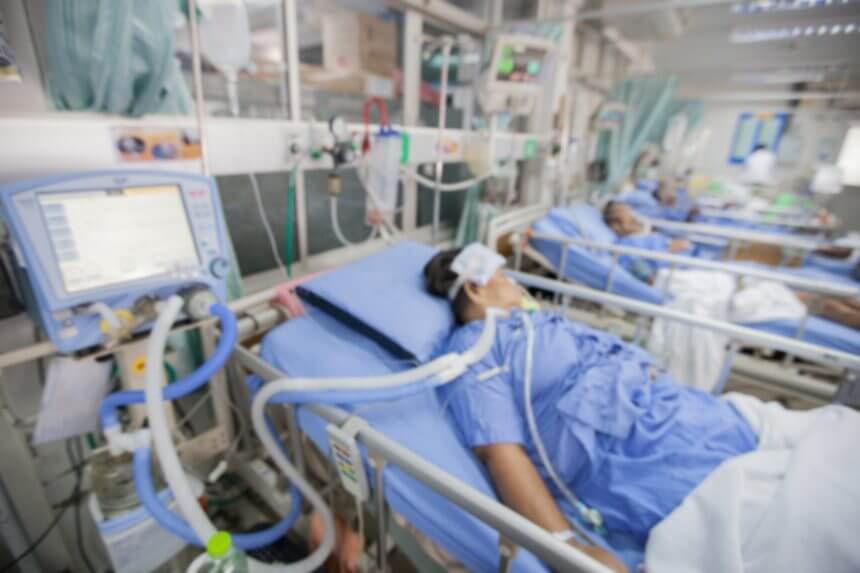Yoğun bakım sonrası sendromu, yoğun bakım ünitelerinde tedavi gören hastaların yaşadığı fiziksel ve zihinsel sorunları ifade eder. Doktor Fizik olarak, bu sendromu daha iyi anlatmak ve bilinçlendirmek amacıyla SEO uyumlu bir açıklama yazarak hastaların ve sağlık profesyonellerinin farkındalığını artırmayı hedefliyoruz. Yoğun bakım sonrası sendromu; kas zayıflığı, kognitif bozukluklar, halsizlik, depresyon, anksiyete ve uyku problemleri gibi belirtileri içerir. Yapılan araştırmalar, hastaların yaklaşık %60’ında bu sendromun görüldüğünü göstermektedir. Bu nedenle, hastaların yoğun bakım tedavisinin sonrasında tedaviye devam etmeleri ve destek almaları önemlidir.
Post-intensive care syndrome (PICS) refers to a set of health problems experienced by patients who have survived critical illnesses and intensive care. PICS is different from traumatic brain injury and post-stroke deficits commonly seen after intensive care. The problems associated with PICS are classified into three main categories: physical, cognitive, and psychiatric disorders. Symptoms can affect only one area or all three.
Critical illness is defined as a life-threatening condition due to an injury or surgery that requires intensive monitoring, treatment, and attention. Improvements in survival rates after intensive care have led to research on the long-term health outcomes of these patients. It has been shown that many people experience significant functional impairment after intensive care. However, our knowledge of PICS is limited as most of the intensive care literature focuses on short-term outcomes such as survival. Prolonged sedation and immobilization are common features of PICS patients.
The term post-intensive care syndrome was first used around 2010, and awareness of long-term functional impairments has increased. Research has focused on identifying the problems, preventing long-term complications, and promoting effective functional recovery.
Physical Problems:
The most well-known physical problem associated with intensive care is weakness acquired in the intensive care unit (ICU-acquired weakness). This is also known as critical illness polyneuropathy, and it is thought to be related to prolonged immobilization and deep sedation. Severe infection and inflammation are also risk factors. ICU-acquired weakness makes it difficult for individuals to perform daily activities, such as dressing, using the bathroom, and moving around the room. This can adversely affect their psychology and independence. The recovery process varies, but it can take up to a year.
Another physical problem caused by prolonged bed rest during hospitalization is joint contractures. The elbows and ankles are most affected, followed by the hips and knees.
Malnutrition during critical illness may be one of the causes of physical weakness. Patients are fed through a vein (parenteral) or a tube (enteral or nasogastric). Interruptions in feeding may occur due to digestive system problems or surgeries that require an empty stomach. Patients receiving mechanical respiratory support may have impaired lung function for months or even years.
Cognitive Problems:
Cognitive functions, such as memory, attention, problem-solving, and decision-making, can be impaired. After critical illness, these impairments are seen in up to 80% of patients. Impairments in memory and executive functions are the most significant problems that affect daily activities and complex mental tasks the most. Most patients recover and show near-complete improvement in cognitive functions within a year. Risk factors for cognitive impairments after intensive care include delirium, previous cognitive impairment, sepsis, and acute respiratory distress syndrome (ARDS). Factors such as decreased brain blood flow due to low blood pressure during sepsis, reduced oxygen supply to the brain due to respiratory failure, inflammation in the brain or disruption of the blood-brain barrier may cause cognitive impairments.
Psychiatric Problems:
The most common psychiatric disorders in PICS are depression and anxiety. Dementia, post-traumatic stress disorder (PTSD), persistent delusional behavior, and other conditions can also occur. Anxiety and delusion may be related to ICU-induced delusional memories. Medically induced sedation can trigger such memories.
Risk factors for psychiatric disorders are similar to those for cognitive function disorders. Severe sepsis, acute respiratory distress syndrome, respiratory failure, trauma, hypoglycemia, hypoxemia, ICU-acquired weakness, prolonged immobilization, and deep sedation all increase the likelihood of developing psychiatric disorders related to PICS. Common sleep disturbances in the ICU can also be a factor. Being under the age of 50, female, previous alcohol abuse, anxiety, depression, PTSD, and PICS-related psychiatric disorder can increase the likelihood of developing such disorders.
Effective treatment can be provided for PICS-related psychiatric disorders. However, preventive strategies are more important. Keeping a daily ICU diary can be helpful in preventing delusional and false memories.
The intensive care process can also cause stress, anxiety, and depression in the patient’s family members.
Treatment:
Preventive approaches are the main focus of PICS treatment. Limiting deep sedation and bed rest (immobility) has the greatest impact. Paying attention to sleep patterns, early recognition and intervention of delirium reduce the incidence of PICS. Early physical therapy and rehabilitation have a positive effect. Adequate hygiene and nutrition are essential requirements. Approaches such as physical therapy, occupation and activity therapy, speech therapy, and psychotherapy targeted at identified problems have been effective in patients with functional limitations after intensive care.
